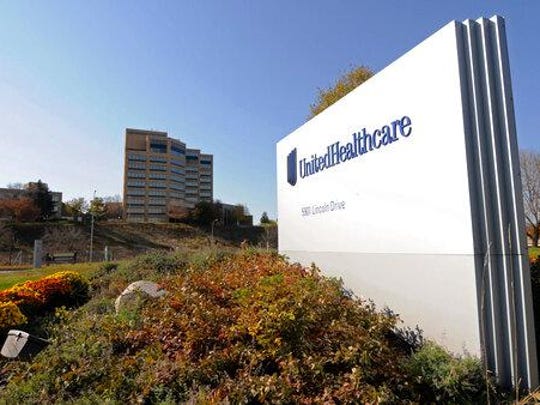‘Chilling effect on patients’: Following backlash, insurance giant UnitedHealthcare delays policy to scrutinize ER claims

Facing mounting criticism from hospitals and doctors groups, health insurance giant UnitedHealthcare said it will delay a policy that would scrutinize payments for non-urgent emergency room visits. (Photo: Jim Mone/AP file photo)
Facing mounting criticism from hospitals and doctors groups, health insurance giant UnitedHealthcare said it will delay a policy that would scrutinize payments for non-urgent emergency room visits.
The policy to review and potentially clamp down on some hospital payments drew outcries from the American Hospital Association and the American College of Emergency Physicians about potential harm of patients’ health and finances.
In a Thursday statement, the Minnesota-based insurer said the policy will be halted until the end of the pandemic.
“Based on feedback from our provider partners and discussions with medical societies, we have decided to delay the implementation of our emergency department policy until at least the end of the national public health emergency period,” Tracey Lempner, spokeswoman for the Minnesota-based insurer, said in a statement.
American Hospital Association officials urged the insurer to abandon the policy altogether. If enacted, the policy “would have a chilling effect on patients seeking emergency services, with potentially dire consequences for their health,” said Rick Pollack, president and CEO of the hospital group.
‘Lawmakers are feeling pressure’: States push ahead on public health insurance to lower costs, improve access
Similarly, the American College of Emergency Physicians said it feared the change would cause patients to avoid using emergency rooms because they will be responsible for their hospital bills when UnitedHealthcare rejects them.
UnitedHealthcare this month told its network hospitals in 34 states that it will assess emergency room claims to determine if visits were indeed medical emergencies.
Under the now-delayed policy, claims that are determined not to be tied to emergencies would be subject to no coverage or limited coverage based on the patient’s insurance plan, according to the insurer’s notice sent to hospitals. As many as 1 in 10 claims could be rejected, said Lempner, spokeswoman for the Minnesota-based insurer
UnitedHealthcare’s policy affects commercially insured patients with employer-sponsored plans and does not apply to patients with Medicare Advantage or contracted Medicaid coverage with UnitedHealthcare, Lempner said.
Source: Read Full Article

